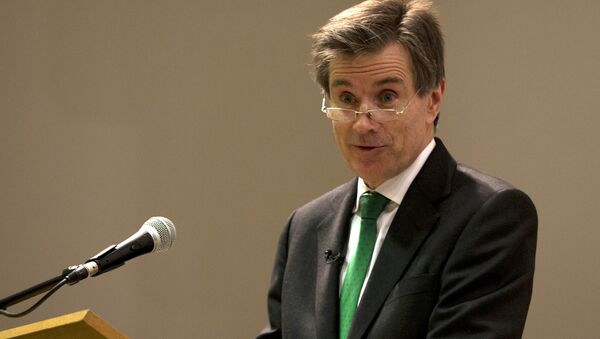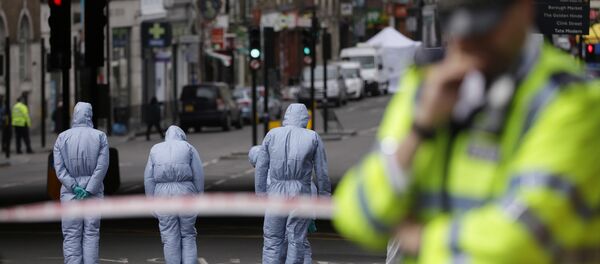Speaking to the House of Commons' Foreign Affairs Select Committee, the former head of Britain's Secret Intelligence Service (MI6) John Sawers stated that Brexit will be detrimental to the UK's global influence, effectively shrinking it.
"We can see the trend of the coming years and we do not want to go through a repeat of the 1970s where the UK went progressively downhill compared to our national partners," he said.
"We have to recognize a pretty stark reality faces us at the end of this process, and we have to rebuild from that."
The former intelligence don expressed his surprise, given that the seat, which went to an Indian judge, was seen as being reserved for an EU member.
Sawers pointed out that Britain would suffer from a "double loss" at the UN because of Brexit, since it can no longer rely on the unequivocal support of the EU member states, while losing its say in shaping the Union's common foreign policy.
READ MORE: The Enemy Within: UK Can't Break Ties With EU Intelligence Without Security Risk
However, Sawers hit back, pointing out the actual economic and diplomatic losses that the UK has suffered following its decision to withdraw from the EU.
"We have to acknowledge that Brexit is damaging our economy at the moment. Immediately after Brexit we suffered a 15% devaluation in our currency — we devalued all the assets in the UK by 15%," he said, pointing that Britain's GDP growth performance dropped to the bottom of the G7 table following the June 2016 referendum.
The retired intelligence officer also highlighted that "for the last 25 years [Britain's] foreign policy has been closely tied up working with [its] international partners, especially France and Germany."
READ MORE: After Brexit UK to Propose New Security Treaty With EU to Fight Terror
Sawers argued that because of Brexit and the resulting loss of global influence, the Prime Minister "is not able to play the same international role in the world as the French president has in the past six months."
The former spymaster told MPs that the UK "will need to turn it around," proposing to expand the budgets of British security and diplomatic agencies as part of the solution.
"It will be vital that we sustain, in many ways enhance, our investments in diplomacy, defense, intelligence — very high investments are made already — if we want to have an influence in the world of the sort we have had over the last 30 or 40 years," he concluded.





